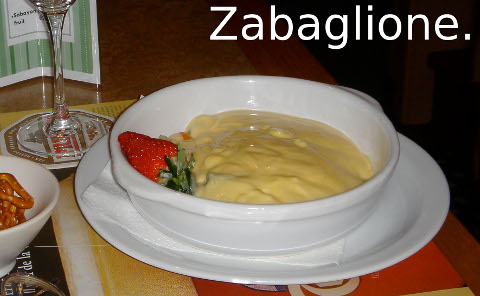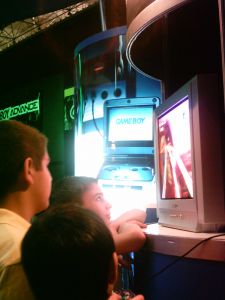07.22.10
Posted in GNU/Linux, News Roundup at 3:20 am by Dr. Roy Schestowitz

Summary: Distributions news accumulated in recent days
-
One or two of the five distros I mentioned yesterday had been labeled as “lightweight” either by their designers or the community around them, and I was probably pushing that definition just a little bit when I gave them the chance to run at 150Mhz on 32Mb of memory.
-
Reviews
-
Unity Linux had their first release on 09/07/2010 after around 1.5 years of development. The project was created in 2009 by former developers from the PClinuxOS (hereafter abbreviated PCLOS) community. One of them was KDulcimer who at the time had his own project TinyMe based on PCLOS, which according to the website started in 2006. His distribution would in the future be based on Unity Linux. So much for how the two are intertwined.
[...]
I have to say I like this basic distribution and the philosophy behind, there is definitely a niche for it. The artwork is an inoffensive non-blinding white swirl on dark-blue background, good for my sensitive eyes, with a Mint leaf floating around giving a fresh impression, and for convenience sake you got ‘halt’ and ‘logout’ buttons on the desktop to access these functions. Mandrake/Mandriva has always been my favourite rpm based distribution and one of the first I used back in the 90′s, and I’m glad to see it and its many innovations living on in so many forms. Mandriva is of course in ongoing financial troubles and after so many years of it I’m a bit pessimistic if that will change any time soon. So what will projects like Unity Linux do if Mandriva disappears?
For the moment at least they are still around, so let’s enjoy this little spin-off if you don’t have long term planning needs.
Unity also runs well in Virtualbox, with guest additions pre-installed. As you would imagine due to its size, it ran well with 384MB memory, but will probably be happy with less.
-
Unlike Microsoft Windows, Linux has a deserved reputation as a bullet-proof operating system. To teach computer security a University lecturer has deliberately produced the most damn vulnerable Linux you’ll ever see.
-
I didn’t have many complaints when it came to Zenwalk’s security. The install process sets a password for the administrator and allows the user to create additional, unprivileged accounts. I did have two concerns. While I was using the distro the repositories were populated with updates, but there didn’t seem to be any notification for the user when security updates were available. I’ve been spoiled recently by systems which automatically check for me. My other concern is Zenwalk runs a secure shell service by default, which allows remote root logins. Preventing root from remotely logging into a machine is a policy I’d like to see more distributions adopt.
-
Lucid Puppy Linux 5.0 was released back in May of 2010, but as one of my favorite distros, I have been playing with it heavily since then. I have been so impressed with the new version that I wanted to take a moment and write a quick review of this release.
You can find the official release page here, along with download information.
-
New Releases
-
Our crew, is happy to announce the immediate availability of XFCE, LXDE and SpinBase/OpenVZ Sabayon 5.3 “Spins” built on top of Sabayon “SpinBase” ISO images.
Under the “Extra Spins” umbrella, the Sabayon developers are going to experiment new Stable Releases with different package compositions.
-
Red Hat Family
-
The open source remote access project will include 3D acceleration, network tunneling, and perhaps iPad, iPhone, and Android tablet support
-
Server maker Hewlett-Packard and commercial Linux juggernaut Red Hat have teamed up to help shops using Oracle’s Sparc/Solaris platforms make the jump to Linux-based x64 iron.
While the two companies did not say so, the migrations services being offered today through HP Services are no doubt a reaction to Oracle’s spiking of HP’s Solaris OEM agreement last month. Under that agreement, HP was able to bundle Solaris on its ProLiant rack and blade servers and sell Solaris support contracts, much as it does for Microsoft’s Windows, Novell’s SUSE Linux Enterprise Server, and Red Hat’s Enterprise Linux.
-
Fedora
-
-
When it was launched in late 2004 it was up against a number of distributions that had been in development for years: Red Hat, Fedora, Suse Linux and Mandriva (then still called Mandrake). These were well-developed distributions with their own fans and unique features. Ubuntu, based on Debian, had a solid base but had a long way to go to be as user-friendly as it planned.
Fast forward almost six years and Ubuntu has delivered. For many users it has been the perfect starting point for their Linux adventures. For others it offers the stability that they want from an operating system. It also has a huge fan-base and is the dominant voice in Linux marketing.
-
Debian Family
-
-
Canonical/Ubuntu
-
-
-
“Does Ubuntu have a firewall, and how do I turn it on?” is a popular question among new Ubuntu users. The answer is a bit complicated, but it’s an understandable inquiry for those migrating from the Windows world. WorksWithU addresses that question below by taking a look at Ubuntu’s firewall and some of the tools available for managing it.
-
In This Issue
* Ubuntu Free Culture Showcase calls all artists to contribute to next version of Ubuntu
* Operation Cleansweep: We Need You!
* Ubuntu Accessibility Team Personas Survey
* ISO testers for the Hall of Fame
* Ubuntu User Days Wrap-Up
* Ubuntu Stats
* Rocking The LoCo Council
* Ubuntu: a computer operating system built around community
* Ubuntu Chicago Bike Tour
* The Early-Summer LoCo BBQ at hutchnate’s house was a tasty success!
* Ubuntu Honduras LoCo Team Wakes up
* Launchpad News
* Ahmed Kamal Joins the Horsemen
* Reviewers Team and Operation Cleansweep
* Ubuntu Manual Project core philosophy
* Man Your Browser
[...]
-
I’m an Ubuntu and FOSS kinda guy, I’m not happy with software that isn’t FOSS and I don’t find any sense in proprietisation of code. Having said that there are times when I must be a little more considered and not simply shun an entire site because it’s not foss.
Heaven known that deviantArt is one of the most proprietary, confused and messed up places I know. Bad copyright advice, no public domain option, admins that consistently ignore open formats like png and svg. FOSS Software isn’t promoted at all in any way. So why in Slartibartfast’s fjords would I want to hang my coat over there?
Well no matter what I do there _will_ be artists over there who use Ubuntu, people who may need help with wacom tablets, upgrades or finding help. There will be people who use Windows or Mac but don’t have FOSS tools yet or perhaps wouldn’t do better with Ubuntu instead. There are artists who’d love to get involved with the wider community but for what ever reason are disconnected by social chance.
-
Officially, Ubuntu does not come with built-in support for the GMA 500 drivers. We gave a workaround to this problem way back in Oct 2009 when the Ubuntu had just released Ubuntu 9.10. People expected Ubuntu to include these drivers in the Ubuntu 10.04 that never happened.
-
Permalink
 Send this to a friend
Send this to a friend
Posted in KDE, News Roundup at 3:03 am by Dr. Roy Schestowitz

Summary: KDE news from the past few days
-
Last month I mentioned that I was looking at switching my desktop environment (DE) from GNOME to KDE and I was considering a move away from Ubuntu completely. About a week ago I installed KDE on my computer and started tweaking things to see how I like it. It’s not too bad, actually. As you can see from the shot on the right I’ve been able to make my desktop a combination of eye candy and functionality. I killed the top panel but was able to keep some of the applets thanks to plasmoids.
[...]
I decided to tweak my desktop a little more and made a few more screenies to show the changes. I moved the digital clock to the bottom of my desktop, mostly to keep it visible if I maximize an app window and can’t see the time in the original position. I also added a Timer plasmoid to replace the timer on my GNOME panel. It doesn’t work as nicely as my GNOME timer did since I can’t set up times associated with a specific task, and I haven’t figured out how to get a sound played when the timer reaches nil, but I do get a nice obvious notification so it’s not so easy to miss as long as I’m at my computer. I also moved the Shutup plasmoid to the lower right corner to make better use of my screen real estate. I added two plasmoids on the lower left to switch my wallpaper and to give me quick access to the files I used to keep on my GNOME desktop.
-
-
Day Three. I am at work, sitting at my desk waiting for a vehicle before I go out. I thought I’d take the time to comment on some things I have noticed with KDE4 so far.
-
Now, the default Dragon Media Player of KDE have a serious competition in Bangarang. Dragon player is simple yet totally functional, which I think are the most basic trait to became the default in any desktop environment. On the other hand Bangarang is new, it’s good and it is rapidly improving.
-
Permalink
 Send this to a friend
Send this to a friend
Posted in GNU/Linux, News Roundup at 2:56 am by Dr. Roy Schestowitz

Summary: News about applications and games that run under GNU/Linux
Applications
-
DeVeDe is an application that converts various video file formats into a disc that can be played in a DVD player. Other applications and tool chains can be coaxed into doing this but DeVeDe has the advantage of being a dedicated utility that has been designed for a single function.
-
-
-
-
Instructionals
-
Games
-
Things may be changing though, over the past couple of years more and more indie games have been released for both PC and Mac, and to a lesser extent, Linux. More significantly, in May Valve updated Steam to include support for Mac, when talking to Doug Lombardi (Valve’s VP of Marketing) he made a bold statement “Steam for the Mac is the biggest news for Steam since the platform was launched in March 2004.”
-
My friend Hamish Wilson emailed me about a new classic roguelike game named Dungeons of Dredmor and it’s being developed by a new indie GNU/Linux friendly company named Gaslamp
-
At the end of last month the VDrift project did their first snapshot release in more than a year for this open-source drift racing game that’s supported on Linux, Windows, and Mac OS X operating systems. The VDrift 2010-06-30 snapshot incorporates a great deal of changes, among which are a rewritten physics engine and a new deferred rendering engine that brings a great deal of visual improvements to this free software game. In this article are some screenshots on this OpenGL racing game and more of the new work found within this release.
-
Permalink
 Send this to a friend
Send this to a friend
Posted in GNU/Linux, Google, News Roundup at 2:52 am by Dr. Roy Schestowitz

Summary: GNU/Linux news picks from several days ago
Desktop
-
-
I do everything with Linux. There are a few instances where I need Windows, but Linux handles this easily, as well. Again, more on this in future posts.
And did I mention that Linux is immune to Windows viruses, malware, trojans and pop ups? When you run Linux, you’ll have no need to run anti-virus software!
-
Five uses for an Ubuntu Live CD.Once you’ve installed Ubuntu from a LiveCD you might never give much thought to what else you could use it for. If so, then meet today’s Daily 5…
Kernel Space
-
Linux kernel maintainers have offered Google three ways of returning Android into their good graces.
Google’s options for re-admission to the kernel are: put the stubs of Android’s wait locks into the main kernel, introduce Android’s wait locks as PMQOS constraints, or adopt a patch written by a Linux kernel maintainer that would re-implement wait locks in a “socially acceptable way”.
-
Graphics Stack
-
A few days back there was the release of two updated NVIDIA legacy drivers for Linux, but only their newest legacy driver (they have three different legacy drivers at present) gained support for X.Org Server 1.8. This support though is needed for the older NVIDIA drivers to operate on newer Linux distributions like Fedora 13 and openSUSE 11.3. On this Sunday evening we have now confirmation from NVIDIA that they have no plans on providing xorg-server 1.8 support for their oldest legacy driver.
Permalink
 Send this to a friend
Send this to a friend
07.21.10
Posted in News Roundup at 6:14 pm by Dr. Roy Schestowitz
-
-
Four years ago, Stacy Snyder, then a 25-year-old teacher in training at Conestoga Valley High School in Lancaster, Pa., posted a photo on her MySpace page that showed her at a party wearing a pirate hat and drinking from a plastic cup, with the caption “Drunken Pirate.” After discovering the page, her supervisor at the high school told her the photo was “unprofessional,” and the dean of Millersville University School of Education, where Snyder was enrolled, said she was promoting drinking in virtual view of her under-age students. As a result, days before Snyder’s scheduled graduation, the university denied her a teaching degree.
-
At a recent local LUG I regularly attend, Braddock Gaskill gave a wonderful presentation on an open source 8-bit computer he had created. This was his first public debut of the device and every person in attendance was enthralled. Later, we met over coffee since I wanted to let him know (and ask if it was ok) that I thought his device would make for a great piece for Linux Journal. Braddock agreed and we started to chat about both the Humane Reader & Humane PC.
-
Environment
-
JW: Looking for a solution to the predicament we are in, of living unsustainably, the importance of values comes up again and again. The focus in China is mainly on science and technology, on hardware – on things that if you drop them will hurt your toe. The importance of values hasn’t really kicked in, but it’s absolutely essential. Where do you get these values? Clearly western values haven’t stopped the west from screwing up the environment. So, it’s worth looking to China’s philosophical and cultural roots.
-
Copyrights
-
If you need some good reading whilst lazing on the veranda of your summer villa, look no further than Privilege and Property – Essays on the History of Copyright
Edited by Ronan Deazley, Martin Kretschmer and Lionel Bently, it’s bound (or not) to be a stimulating intellectual work.
[...]
It’s time someone noticed the nails keeping copyright upright upon its perch.
Copyright is history. Lawyers can read it and weep.
-
And what makes you think you should automatically get free money from people using these technologies when the content creators you represent fail to adjust or adapt at all? But rather than adapt, Copyswede is just taking the position that more technologies should be taxed and the market should be distorted further. The plan is to tax mobile phones 100 kronor (about $14), because having the government step in and force people to give you money is, you know, a lot easier than actually having to work for a living.
-
ACTA
-
The Ministers of Economic Affairs and Justice argue for renewed openness about ACTA trade agreement.
Resigning ministers Maria van der Hoeven of Economic Affairs (EZ) and Justice Ernst Hirsch Ballin are disappointed that the negotiations on trade treaty ACTA remain behind closed doors.
CLUG Talk – 27 Nov 2007 – AGM: Compiz-Fusion-Beryl-BURN! (2007)
Permalink
 Send this to a friend
Send this to a friend
Posted in Free/Libre Software, News Roundup at 6:03 pm by Dr. Roy Schestowitz

Summary: Gathering of some Free software and Open Source news
-
We run down the 10 best open source alternatives to the business software we use every day.
Running a business can be costly at the best of times, so we’ve delved into the open source world and plucked out some great alternatives to those heavyweight proprietary applications that we all know and need.
These applications could prove viable solutions to real business needs and could save you and your organisation money in the process. What’s more, if you’re just starting out these pieces of software could have your business up and running (and earning) a site quicker, not to mention keeping you in the black for longer, which is no mean feat in 2010.
-
The 2010 New Zealand Open Source Awards are now open for nominations at http://www.nzosa.org.nz/.
This year’s Awards will focus particularly on achievements from over the past two years.
“There were so many strong nominations for the 2008 event,” said panel chair Don Christie, “that we are keen to hear back from projects that have moved forward in the last years, as well as new initiatives using free and open source solutions.”
-
In the field of graphic arts, vector clip art is associated with pre-made images used to represent whatever medium. It is comprised completely of illustrations made using computer software, and it does not contain stock photography.
-
The Apache Software Foundation (ASF) is pleased to announce that Shane Curcuru, Doug Cutting, Bertrand Delacretaz, Roy T. Fielding, Jim Jagielski, Sam Ruby, Noirin Shirley, Greg Stein, and Henri Yandell have been elected to serve on the ASF Board of Directors.
-
Mozilla
-
OPEN SOURCE SOFTWARE HOUSE Mozilla has upped the bounty it offers to anyone that discovers a bug in its software.
In a blog post Mozilla said that the evolving threat landscape had lead it to raise its reward to $3,000 in order to “better support constructive security research”.
-
Education
-
For K-12 IT directors, the major appeal of open source software (OSS) generally focuses on savings in licensing fees and access to software that would not otherwise be affordable. Many also are finding that OSS simply is the best solution for their school districts–even compared to commercial versions.
IT directors with OSS experience largely have been opportunistic about how they got started. In a series of interviews conducted for THE Journal, three IT directors shared their experiences–the hows and the whys–launching OSS in their districts.
They have very different stories, but have all learned that the transition to an open source “shop” takes time.
-
BSD
-
The FreeBSD Security Team have identified a little bug in FreeBSD where a lost mbuf flag can result in data loss.
-
Government
-
The government’s decision not to renew an agreement with Microsoft for up to 800,000 NHS desktops could be an opportunity for open source suppliers to prove their worth.
According to an article on IT channel website Microscope.co.uk, the government did not feel the deal, known as an enterprise agreement, which aims to give lower prices in return for group buying was not value for money. It prefers individual NHS Trusts to buy what they want, rather than being forced to be part of an enterprise wide deal.
-
The European Commission is planning to spend 3.344 million Euro until 2016 to continue the services provided by its projects – such as OSOR.eu and SEMIC.eu – on open source and on electronic data exchange.
The EC published the budget details last week Thursday for its e-Government project. Apart from the 3.344 million Euro planned for the new platform to provide collaborative services for current Semic.eu and OSOR.eu users, another 8.8 million Euro are foreseen to provide support for existing and future communities around eGovernment in general, including the growing Open Source community on OSOR.eu and the community around interoperablity assets on Semic.eu.
-
Openness/Sharing
-
Why should the free and open source software community regard their work as a commons? For people focused on building a specific piece of software, the need to label it a “commons” may seem gratuitous. What’s the value? But there are some good reasons for understanding free/open source software as a commons, as I explain in a recent essay published by the FLOSS Roadmap project.
-
It’s hard to predict how an open source hardware revolution could change consumer electronics. There are very few ideas that stem from complete air — nearly every great new thing has come from modifying something that came before.
-
Programming
-
Adobe has announced that its partnering with Sourceforge to expand its open-source offerings and have more flexibility with the related programs. Basically, all of Adobe’s open-source and standards efforts will be hosted and managed on Sourceforge through the site’s new developer platform. Adobe is actually the first customer of the newly launched platform.
-
The US State Department has thrown its weight behind an initiative to promote software development for the good of East African residents.
The Apps 4 Africa contest was launched earlier this month and aims to encourage developers to produce software that will improve the quality of life for residents of this region.
Permalink
 Send this to a friend
Send this to a friend
Posted in GNU/Linux, Google, Hardware, News Roundup at 5:45 pm by Dr. Roy Schestowitz

Summary: Nokia should have stuck with ARM; OLPC with Fedora gets another 75,000-unit order; Tablets prove good for Linux
-
If you’ll remember, Google TV has received a considerable amount of attention first when the platform was announced and then again when Logitech showed off the Revue with Google TV set top box. This platform and set-top box will bring with it the ability to search for content wherever you want (Internet, cable, satellite, etc) along with being able to stream content from a networked computer – two things that traditional service provider issued set-top boxes usually do not allow.
-
Nokia/MeeGo
-
With the introduction of Intel’s Poulsbo (GMA 500) chipset it marked a point at which Intel’s Linux graphics support was no longer stellar, but as they had outsourced the graphics IP from Imagination Technologies, they could not provide an open-source driver stack like they do with their in-house IGPs. Not only was this Intel Poulsbo Linux driver closed-source, but the level of support was appalling and it was a bloody mess of a situation. The overall situation since has only become worse and even MeeGo (their own Linux OS) will be shipping without Intel’s EMGD driver.
-
Sub-notebooks
-
Authority of the state government has ordered 75,000 laptops under the One Laptop Per Child (OLPC) scheme for wide coverage of schools by the mission aims at creating educational opportunities for the world’s poorest children by providing each child with a rugged, low-cost, low-power, connected laptop with content and software designed for collaborative, joyful, self-empowered learning.
-
Tablets
-
ABI Research reckons Linux-powered non-smartphone mobile devices will comprise 62 per cent of operating systems by 2015.
Permalink
 Send this to a friend
Send this to a friend
Posted in GNU/Linux, KDE, News Roundup at 5:33 pm by Dr. Roy Schestowitz

Summary: News about KDE, new releases, and Red Hat’s healthy state
K Desktop Environment (KDE SC)
-
It is a bit later than I envisioned, but here it is. Day one of using KDE4 of a seven day series on the Desktop Environment.
If you are new to my Seven Day Challenges, you can also read through my Gnome Shell or Windows 7 Seven Day series.
-
I ended up taking two “breaks” during the day today to do “30 minute hacks”. This is where I do something in the codebase that may or may not end up being useful but which I find interesting to try out, keeping the exercise to a length of 30 minutes or less.
-
At Akademy in Tampere we interviewed Dirk Hohndel, Chief Linux and Open Source Technologist (we would call him ‘dude’) at Intel. He was present representing Intel and checking out what the KDE community is up to. As he sacrificed spending the 4th of July with his family for this, we were anxious to talk to him. Sunday, after the Elegant keynote by Aaron Seigo, we managed to catch him for a chat and first asked him what he thought about the keynote.
-
Not content to just sit back and learn tmux alongside cone, I also spent a little time over the past few days messing with a few other distros, both on this machine and a much faster one.
-
Reviews
-
Distro Release Votes (%)
PCLinuxOS 2010.1 137 (31%)
Linux Mint 9 78 (18%)
Ubuntu 10.04 (and brethren) 63 (14%)
OpenSUSE 11.3 47 (10%)
Fedora 13 20 (4%)
Arch Linux 2010.05 19 (4%)
Pardus 2009.2 18 (4%)
Other 16 (3%)
Mandriva 2010.1 13 (3%)
Slackware 13.1 13 (3%)
Sabayon 5.3 4 (0%)
CentOS 5.5 2 (0%)
-
Usually, when installing a new operating system the hope is that it’s as up-to-date as possible. After installation there’s bound to be a few updates required, but no more than a few megabytes. Damn Vulnerable Linux is different, it’s shipped in as vulnerable a state as possible.
The idea behind DVL is to offer an operating system for learning and research for security students. As the DVL website explains:
Damn Vulnerable Linux (DVL) is everything a good Linux distribution isn’t. Its developers have spent hours stuffing it with broken, ill-configured, outdated, and exploitable software that makes it vulnerable to attacks. DVL isn’t built to run on your desktop – it’s a learning tool for security students.
[...]
For general operating system distribution there is an obsession with always shipping the most up-to-date version. It’s a good obsession to have, as for the most part we all want the most current and secure software running on our machines.
-
Kongoni is billed as a Slackware-based, desktop-oriented GNU/Linux distribution and live CD, with a BSD-style ports tree and a graphical management system. Given that Slackware is the most BSD-like Linux this seems to make sense.
Having heard good things about FreeBSD, Arch, and Gentoo which come to mind, this sounded intriguing and I decided to give this young project a spin. Kongoni has only had one release out so far, version 1.12.2 released 12/07/2009, a year old by the time you read this. This release was still based on Slackware 12 according to the developer, but has moved up since then via the repository. At the moment it is in sync with Slackware current, I suppose until the new release is out which, going by the kernel 2.6.34 and application versions will be based on Slackware 13.1.
[...]
Kongoni definitely has character and I hope it will be able to build a community to sustain it, rather than just the passing curious distro-hopper. Kongoni offers with their base install yet another way of doing things and in particular another way of using Slackware. It also is, not to forget, a Live CD by default, which should strike a chord with people looking for a Slackware based Live CD, particularly as we haven’t heard anything from the Bluewhite64 or the Slax projects in this respect for a while. (The Slax community has been providing unofficial remixes now for a while, but they’re not touching the base.)
-
Overall, I’d have to give Mandriva’s “Farman” release a solid eight and a half out of ten. I’ve always been a Mandriva fan since the first time I’ve used it, and it remains to this very day one of the best distros I’ve used. RPM based or not, if you’re starting out with Linux and would like a gentle introduction to how Linux can work smoothly, without using Mint or Ubuntu, Mandriva’s certainly my choice for you. And if you’re more experienced with Linux, Mandriva still has a lot to offer you in terms of customization, stability, and the lightness that comes with their experience in the Linux market. Well done, Mandriva, well done. Once again, you prove that Red Hat can be amazing: it just depends on how you use it.
-
PCLinuxOS/Mandrake/Mandriva Family
-
The second release candidate release of KDE 4.5 was released last week and again thanks to neoclust we have packages for Mandriva 2010 Spring since the beginning of this week.
-
Red Hat Family
-
Piper Jaffray is out with a research note this morning, where it reiterates its Overweight rating on Red Hat Inc. (NYSE: RHT); it also has a $37.00 price target on the stock.
The Piper Jaffray analysts said, “We recently interviewed 45 Red Hat partners to assess opinions of RHEV and found that 80% believe RHEV already delivers a TCO that is superior to, or equal with, VMware (NYSE: VMW). Customers appear ready for an open, viable alternative to VMware, as contacts indicate several large VMware customers are taking a very close look at RHEV. Our prior work showed that RHEV can drive 10% of RHT’s bookings in the next 12-24 months, and the current results provide reason for incremental optimism.”
-
Shares of Red Hat, Inc. (NYSE:RHT) booked a new 52 week high today by trading above $32.52, traders are definitely monitoring Red Hat’s price action to see if this move attracts further buying into the stock.
Red Hat, Inc. (NYSE:RHT) develops and provides open source software and services, including the Red Hat Linux operating system.
-
RHEL 6 is an excellent product. It works great. You have everything. Well, almost everything. Except NTFS support, everything works superbly, without any hitches. RHEL 6 combines modern technology with stability and quality to create a perfect formula. Whether you want this to become your server or your desktop, you have the right tools for the right job. Memory footprint is low, suspend & hibernate works, Wireless works, the choice of programs is well balanced, what could you ask more? And remember, this is only a beta release!
-
Fedora
-
Dennis asked, “What do you see as the biggest challenge in your starting weeks/months?”
Jared replied, “We need to continue to push Fedora development, and to make the Fedora community more inclusive. I’m reminded this week at FUDCon at the barriers to entry that are there, not because we’re trying to be exclusive, but because of language and cultural differences for example… My biggest challenge in the beginning is to find ways to get buy-in from all the parties involved so that we can push with a concerted effort. I’d rather make it a collaborative effort.”
-
The author of autoten has done a superb job in keeping the application fuss-free & that should be appreciated as nobody wants to wander through menus to get simple things installed. Considering this application will be used by amateurs, there is no way they will get lost or feel intimidated by the huge(complex but informative) homescreen. Autoten gets a highly recommend tag from our side.
-
Canonical/Ubuntu
-
First question that comes to mind is really? The COO of Ubuntu’s Canonical argues that the desktop OS is virtually dead, replaced by “a new breed of “desktop” platform.” He contends that the big players that have our attention like Google and Facebook are increasingly OS agnostic, thus making the base OS more and more irrelevant.
-
-
The Ubuntu Software Center will feature software which you are able to purchase.
Sounds like the same thing as all the other’s right?
-
-
-
-
Security Consultant Lenny Zeltser has released a lightweight version of Ubuntu that includes a collection of malware analysis tools and runs as a VMware Virtual Appliance.
-
Flavours and Variants
-
After more than a year in development, the Jolicloud developers have confirmed that the major 1.0 release of their operating system has started rolling out to existing users this week. According to a post on the Jolicloud blog, founding members that have been running Jolicloud since the first Alpha release will receive the update first.
-
The team behind the Peppermint cloud-based flavor of Linux is at it again, this time delivering Peppermint Ice – a new version of Peppermint featuring a Site Specific Browser for launching Web applications and cloud applications.
-
Summary: Peppermint Ice is a great alternative for Peppermint OS One users that wanted Chromium as their default browser. It’s also perfect for anybody that wants a web-centric distro that is extremely fast and stable.
Rating: 4/5
-
Based on Lubuntu 10.04, Linux 2.6.32, Openbox 3.4.10, LXSession 0.4.3, and Xorg 1.7.5, Linux Mint 9 LXDE features a complete desktop computing experience while being easy on system resource usage thus making it suitable for older hardware and situations where speed is a crucial factor.
Permalink
 Send this to a friend
Send this to a friend
« Previous Page — « Previous entries « Previous Page · Next Page » Next entries » — Next Page »
























 Content is available under CC-BY-SA
Content is available under CC-BY-SA